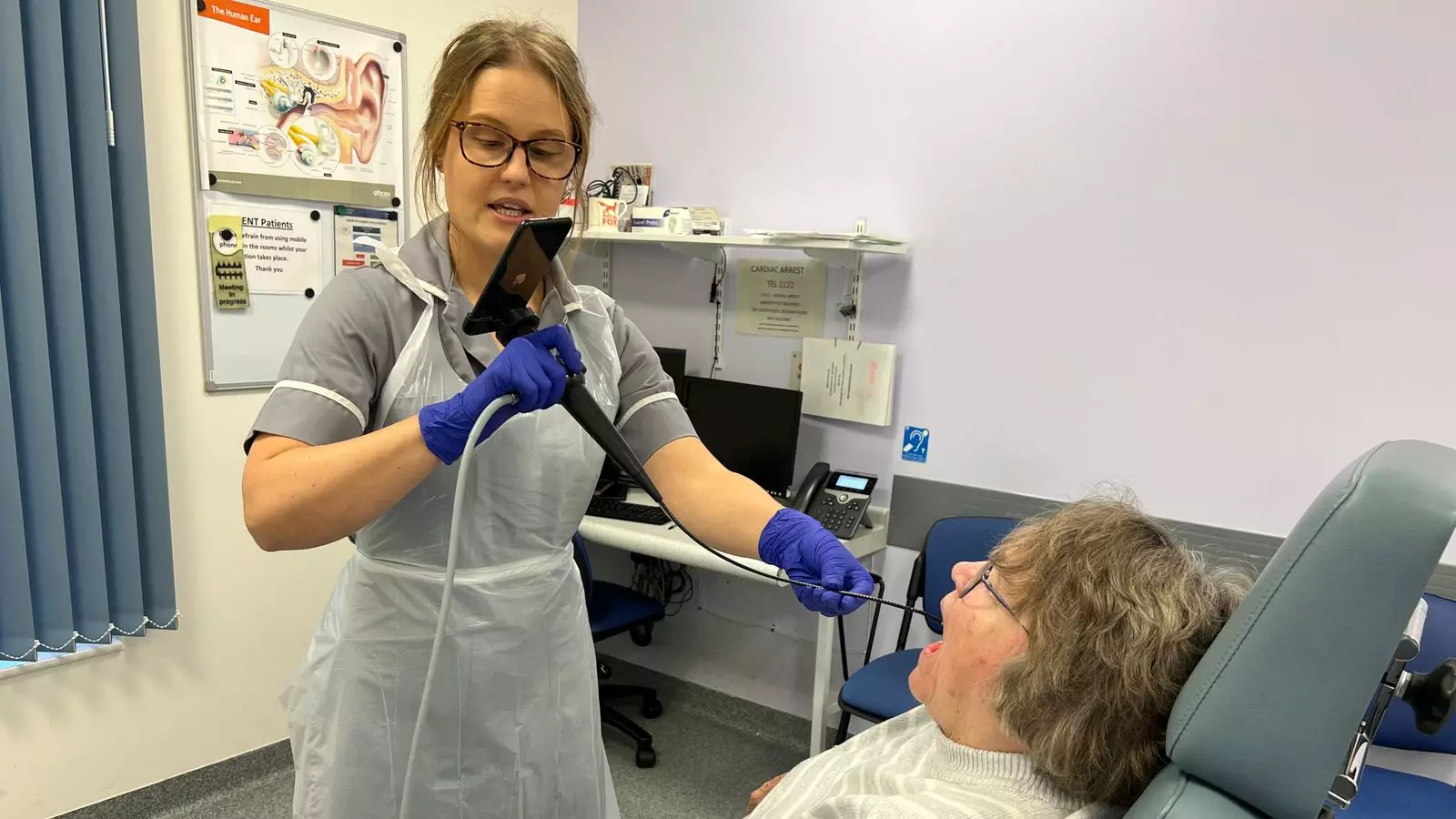In a groundbreaking initiative, the National Health Service (NHS) in the UK has commenced trials for an innovative iPhone adapter aimed at assessing throat cancer. This device could significantly transform the way throat cancer is diagnosed, enhancing the speed and efficiency of care while reducing the burden on traditional medical procedures. Traditionally, individuals suspected of having throat cancer are subjected to endoscopic examinations, a process that can be invasive and often requires extended waiting periods for results. The new adapter, which connects to Apple smartphones, aims to streamline this process and alleviate anxiety for both patients and healthcare providers.
The endoscope-i adapter features a sophisticated 32mm lens that facilitates high-definition visualizations within the throat. Accompanied by a user-friendly application, it enables healthcare professionals to capture detailed footage during examinations. This footage can be swiftly shared with specialists, allowing for more immediate evaluations and reducing the need for patients to remain in a hospital setting. This change not only promises faster diagnostics but also expands the possibilities for testing in community healthcare environments, potentially reshaping how patients interact with the healthcare system.
Trial results from the North Midlands University Hospitals NHS Trust have already yielded promising outcomes. Over 1,800 patients defined as low-risk for throat cancer received their results within 23 hours, alleviating much of the uncertainty and anxiety typically associated with cancer testing. Furthermore, the device successfully identified cancers in approximately one in every hundred cases, and remarkably, no cases were overlooked during the trial run. The immediate feedback provided by this technology can fundamentally alter how individuals and their families cope during what is often a stressful and confusing time.
The anxiety of awaiting cancer test results is one that countless patients can relate to. As illustrated by the testimonies of trial participants like Janet Hennessy, who expressed the peace of mind afforded by expedited results, the psychological impact of waiting can be detrimental. After undergoing a procedure, the typically long wait of weeks for results can place significant emotional strain on patients and their families. The early detection capabilities of the iPhone adapter not only save lives but also enhance the overall patient experience by reducing the associated stress of uncertainty.
Real-world experiences, such as that of Kyle Jones, highlight the life-changing potential of this innovative technology. Diagnosed with cancer after experiencing seemingly benign symptoms such as a hoarse voice, Jones’s story exemplifies the importance of early detection. The prompt access to diagnostic tools via the smartphone adapter significantly contributes to timely medical interventions. Jones’s expression of gratitude highlights how this device might have altered the trajectory of his healthcare experience, emphasizing the necessity for continuous advancements in diagnostic technology.
With approximately 250,000 urgent referrals for suspected head and neck cancer annually in the UK, the implications of the iPhone adapter are substantial. Although only about 5% of those referred are ultimately diagnosed with cancer, the transformative power of expediting diagnostic assessments could reshape healthcare. As officials speculate on the broader application of this technology within diagnostic centers across the country, an astonishing reduction in hospital visits, resource allocation, and waiting times could be achieved.
The NHS’s innovative iPhone adapter symbolizes a pivotal shift towards more accessible, efficient, and less stressful cancer diagnosis protocols. By harnessing advanced technology to enhance diagnostic processes, this initiative not only stands to improve healthcare outcomes but also significantly alleviates the anxiety patients face during the diagnostic journey. As trials progress and the technology becomes more widely adopted, the future of cancer diagnostics looks promising, paving the way for enhanced patient care and an overall better healthcare system. The hope for quick, accurate diagnoses could soon become a reality, ushering in a new era of cancer detection that prioritizes patient wellbeing and timely medical intervention.


Leave a Reply